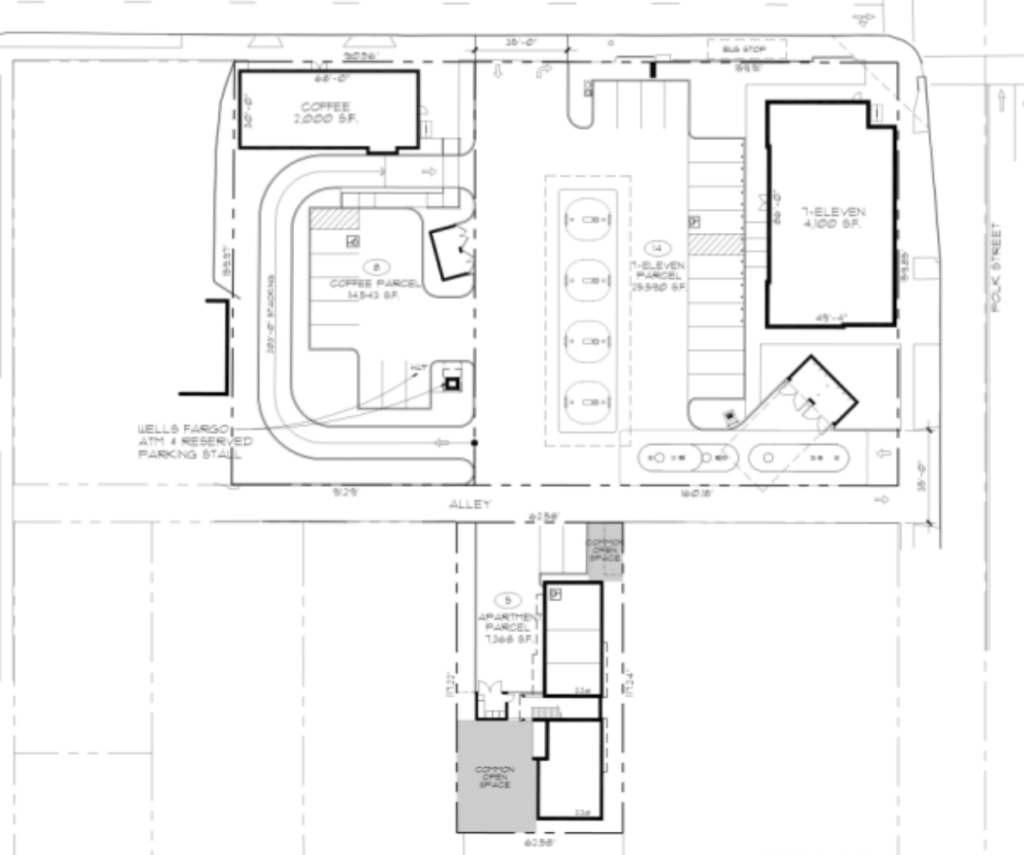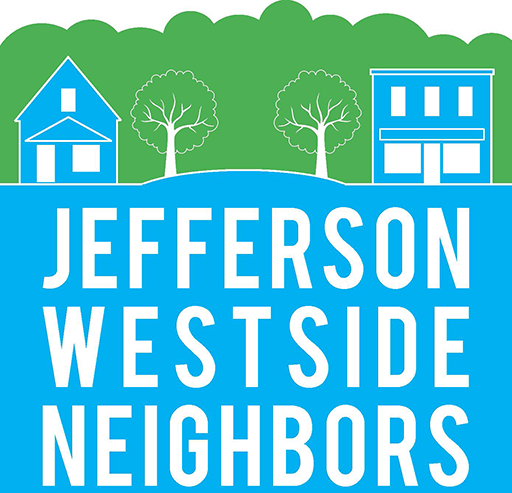Updated September 24, 2021
If you wish to join a dedicated list [“StopPolkGas”] focused on stopping this project, contact Paul Conte and request that he send an invitation, or you can request to join: Find and join a group – Google Groups Help
Read public testimony (overwhelmingly against) here
The housing portion of the project has been withdrawn.
The city has opened up public comment on a proposed 7-11, a large gas station w/a drive thru coffee at Polk and W. 7th at the former Wells Fargo site. This does not include the Woke Coffee Drive thru, which would be directly next door. While proposal does include a few units of housing on the alley, it hardly makes up for the traffic and decrease in usability for the Polk and W. 7th interaction.
While the irony of building such a car-centric project next to and EMX stop, or even adding fossil fuel capacity when the city is trying to reduce natural gas use to reduce carbon, at this point is there is nothing that prohibits this development except for several exceptions on traffic flow the developer is asking for.
(3)(a) All driveways shall have a minimum 50-foot internal vehicle stacking area. The internal vehicle stacking area is measured from the back of the sidewalk to centerline of the first internal circulation driveway or parking aisle, and is designed to queue vehicles exiting the development site and to prevent vehicles entering the development site from blocking the flow of traffic on the public street or causing unsafe conflicts with the on-site circulation.
(a) Physical conditions preclude compliance with EC 7.420. Such conditions may include, but are not limited to, topography, trees, existing buildings or other existing development on the subject property or adjacent property.(b) The proposed adjustments to the standards will provide safe ingress and egress to the development site, will not negatively impact the efficiency of the public right-of-way, and will not result in a hazard to the bicycle, pedestrian or vehicular traffic using the right-of-way.(c) The proposed development will not impact one or more of the existing access connections to the development site. Impact to an existing access connection includes, but is not limited to, increasing the number of vehicles, either directly or indirectly, that will utilize an existing access connection for ingress or egress to the development site.(d) Compliance with EC 7.420(1)(c) will result in traffic patterns inconsistent with the character of the property located within a quarter mile radius of the development site or will increase the number of vehicular trips using the street with the lower classification above the typical daily trip range for that street’s classification.
This references 9.6735 Public Access Required.
(1) Except as otherwise provided in this land use code, no building or structure shall be erected or altered except on a lot fronting or abutting on a public street or having access to a public street over a private street or easement of record approved in accordance with provisions contained in this land use code.(2) Access from a public street to a development site shall be located in accordance with EC 7.420 Access Connections – Location. If a development will increase the development site’s peak hour trip generation by less than 50% and will generate less than 20 additional peak hour trips, the development site’s existing access connections are exempt from this standard.(3) The standard at (2) may be adjusted if consistent with the criteria of EC 9.8030(28).

